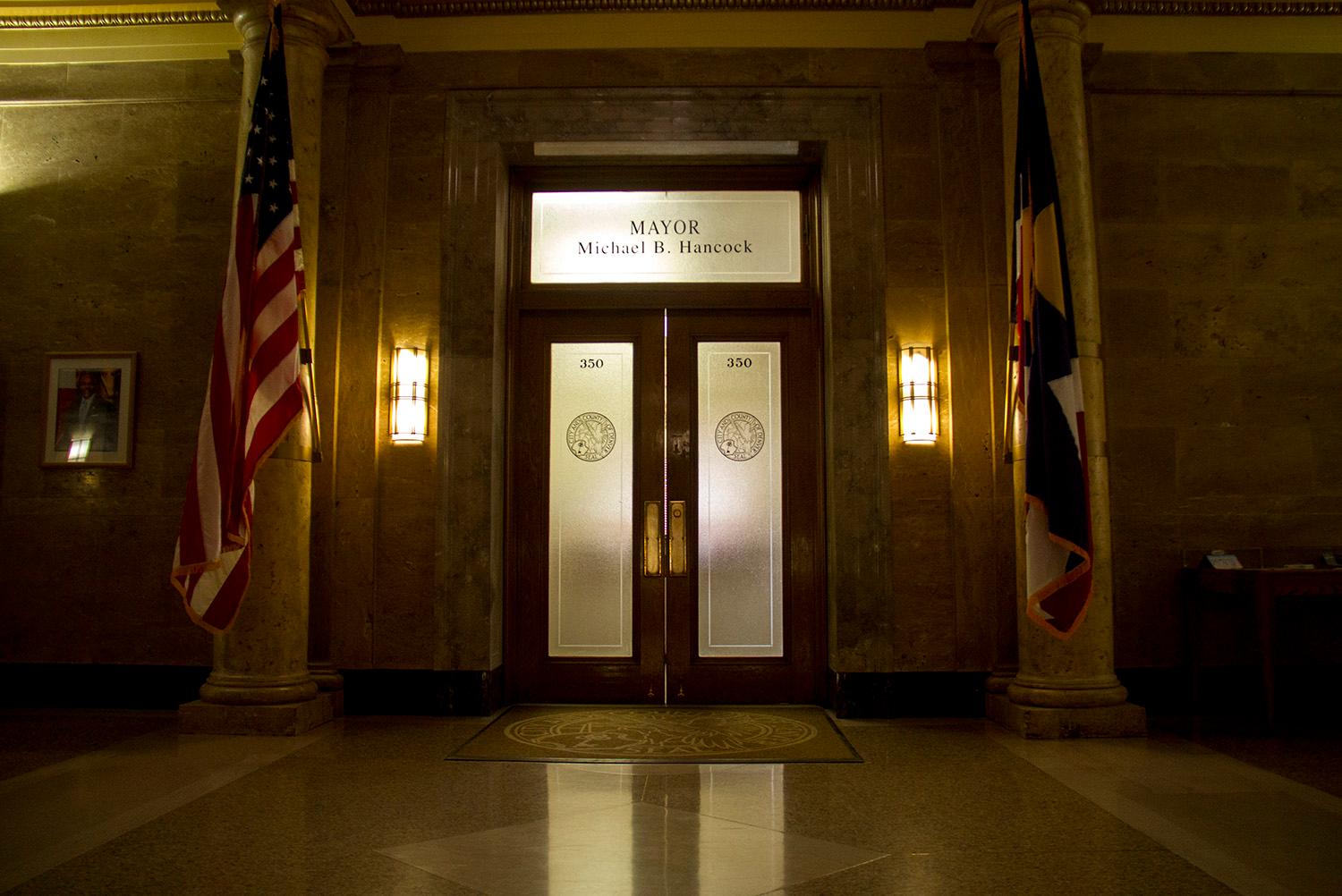The mayor of Denver is the most powerful city official around.
The office sets the city budget, the clearest way to decipher the head-of-city's priorities. It's kind of like looking at your (my) bank statement and realizing you (I) have a problematic addiction to Chinese noodles. Except instead of noodles, more important things like housing, transportation and public health are at stake.
Denver's mayor, who is elected to a four-year term, has the Denver City Council's number when it comes to power. While members have to sign off on the budget, they're the lower branch of what's called a "mayor strong" government. The city council makes laws, but the mayor has the power to approve or veto them. The city auditor is the mayor's office's main check on power.
That's all to say that Denver's mayor matters -- more than the job does in other cities. So here's who will be on the ballot for the May 7 municipal election. Ballots will be mailed in April.
Candidates you may have heard of
Lisa Calderón
Lisa Calderón's platform centers on affordable housing, "resident-led" development, decentralizing the mayor's office, and women and workers.
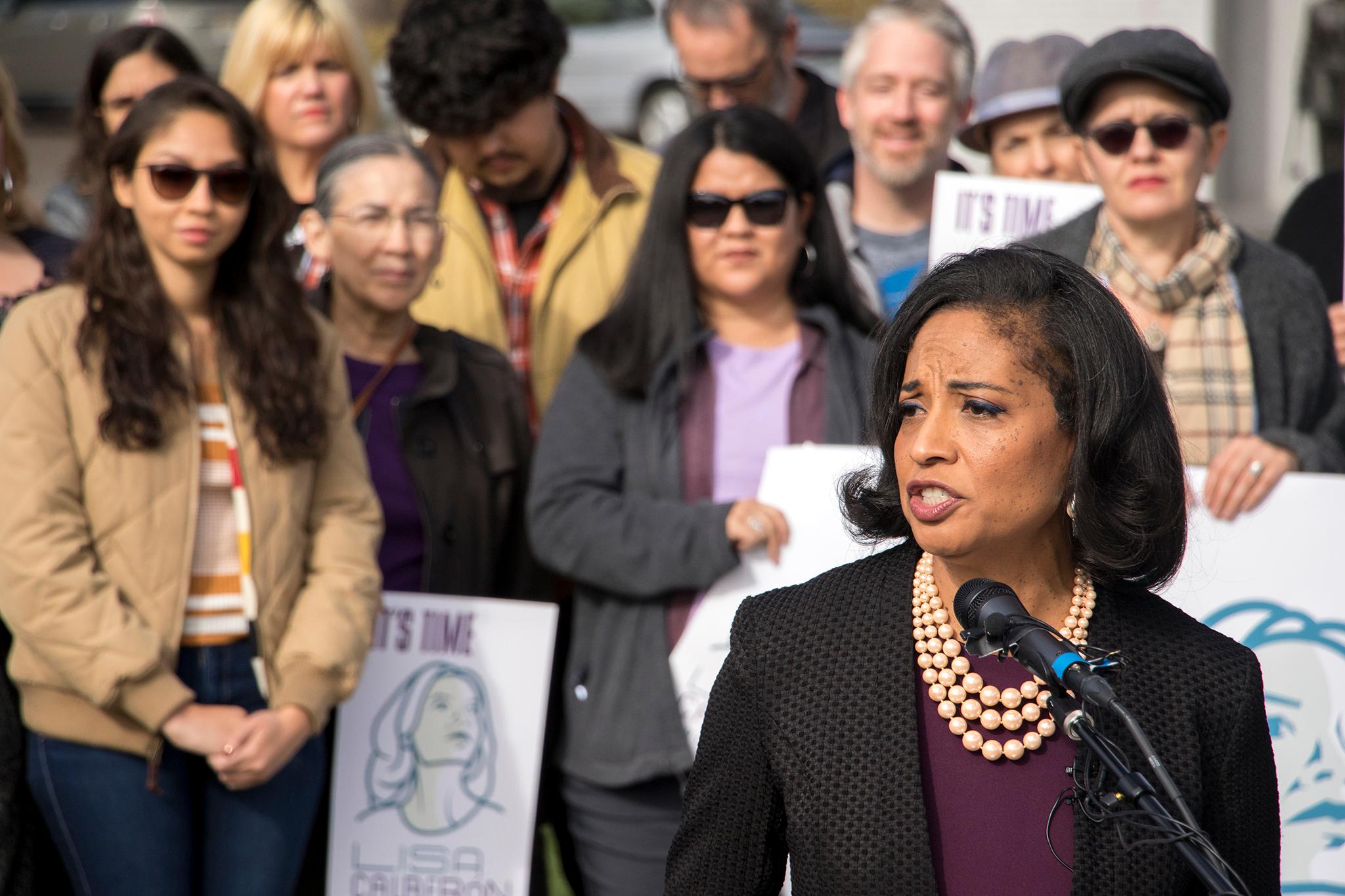
"There are ways to do density that really centers a community in it, rather than a developer's idea about cramming so many people in there," she told Denverite in October.
Calderón co-chairs the Colorado Latino Forum, which works to bolster political strength and civic engagement among Latinos. The activist also founded the Community Reentry Project, a nonprofit to help former inmates flourish in society after jail. She closed the organization after losing a city contract, which is the subject of a pending lawsuit against Mayor Michael Hancock.
If elected, Calderón would become Denver's first female mayor.
Here's a deeper profile on the candidate.
Jamie Giellis
Jamie Giellis helped develop and lead the RiNo Art District, a branded geographic area in the River North section of Five Points that works with businesses to finance neighborhood improvements. If elected, she would focus on housing, transportation, environmental sustainability and education, she told Denverite earlier this month.
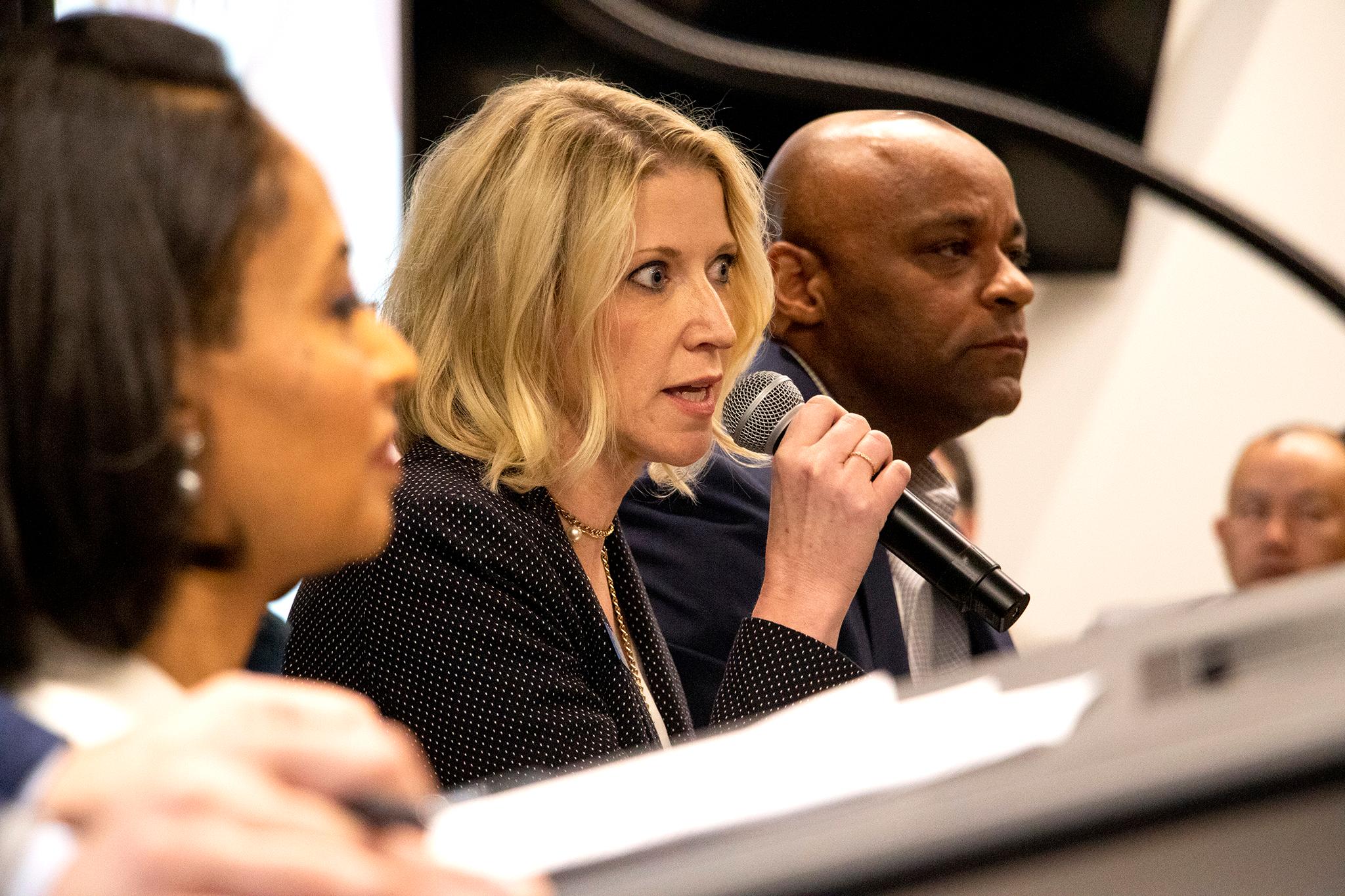
"A lot of this has to do with looking at leadership at the city from the inside out," Giellis said. "There's been significant growth here. And that in and of itself is not necessarily a bad thing. But I think growth has to be accompanied by being forward-thinking about how we look at and address all the things that come with it."
Denver faces a shortage of about 26,000 homes for the city's lowest earners, according to the Hancock administration's housing plan. I asked Giellis how her plan for attainable housing would differ from the city's current blueprint, which includes an affordable housing fund that was recently doubled.
"I think that there's been a lot of great things said, but I'm not sure that there's been as many great things actually done on that front," Giellis said. "Number one, it's unfortunate that the priority came so late. Number two, it's one thing to put money in a fund, it's another thing to turn that money into housing."
Moving people more efficiently with transit and biking is another goal of the new candidate.
If elected, Giellis would become Denver's first female mayor.
Mayor Michael Hancock, the incumbent
Mayor Michael Hancock has presided over the city since 2011, so he's overseen several years of unprecedented growth and development. He's running for his third and final term.
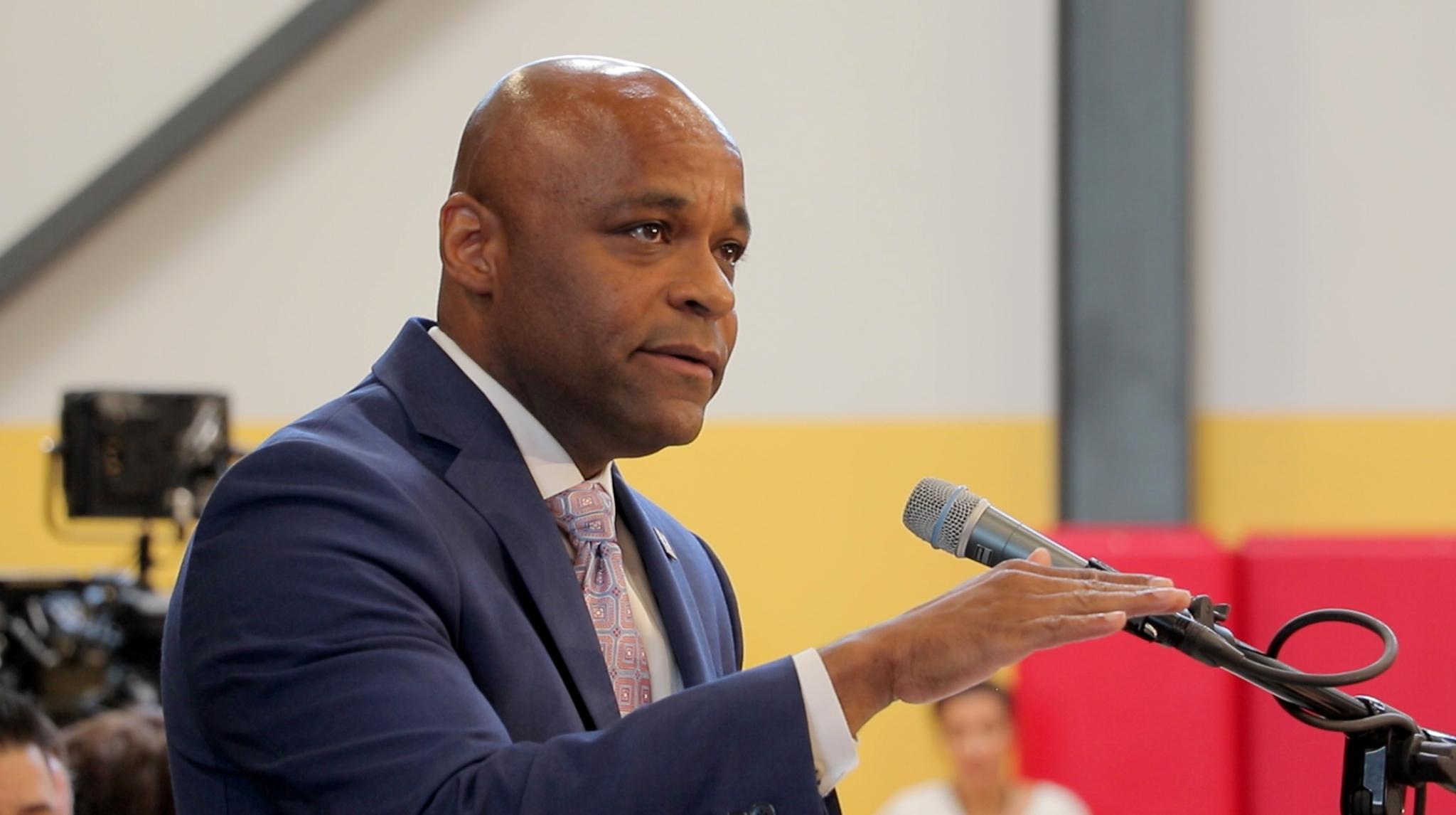
It's fair to say that housing, displacement from gentrification, and transportation have the mayor's attention lately. Hancock, along with the city council, created Denver's first-ever affordable housing fund. Still, the mayor has quarterbacked the city during a period of increasing gentrification and displacement.
"Denver is one of the best cities to live, work and play - we've got a lot to be proud of and there's more work to do," Hancock said in a statement. "We are delivering on solid plans created by the community to provide more affordable housing for our families and keep Denver a welcoming place for everyone to live."
Sexual texts sent by Hancock to a subordinate, Detective Leslie Branch-Wise, have scarred his tenure -- but it's unclear whether the incident has hurt his chances of returning to his office at the City and County Building next year. Hancock apologized after the news surfaced.
The Hancock administration has made the intersection of transportation and housing a priority on paper this year, releasing new plans for transit, land use, walking and parks under the banner of "Denveright."
He's raised about $713,000, according to campaign finance disclosures.
Kalyn Rose Heffernan
Kalyn Heffernan's candidacy started as an April Fools joke. Then people got really excited, so she went legit.
"There's just so much at stake in Denver right now that I kind of felt like I didn't have much of a choice," Heffernan said in an interview.
You may know Heffernan as the voice of Wheelchair Sports Camp, an experimental hip-hop group. Or as an activist and DIY artists fighting against displacement from gentrification. The 31-year-old is also a teacher at Youth on Record.
She's running on a platform of access: access to shelter for people experiencing homelessness, to higher income, to education, to food, to water and to convenient public transportation. The candidate, who uses a wheelchair, said she would invest significantly in transit, work to repeal the urban camping ban and "redistribute the wealth and the power from the bottom up rather than the top down."
"I'm for the marginalized people, the vulnerable people, the people that I think government affects disproportionately," Heffernan said. "I am a clear disabled woman and part of a community of a lot of radicals and people of color. So much has just been taken from us and it's already just so much work to survive and exist."
Heffernan's referring to what she sees as leaders selling the city to real estate interests. It's an example of politicians being disconnected from the masses, she said. She hopes to break through to people with her artistic abilities (see entertaining and informative video)
"I don't know how to be a politician, but I actually know all these things that politicians aren't doing, which is why we aren't feeling connected to them, which is why we don't see them, which is why we don't trust them."
Penfield Tate
Penfield Tate is looking to restart his political career after 15 years away from elected office. He's served as a state representative and state senator, but hasn't held office since 2003.
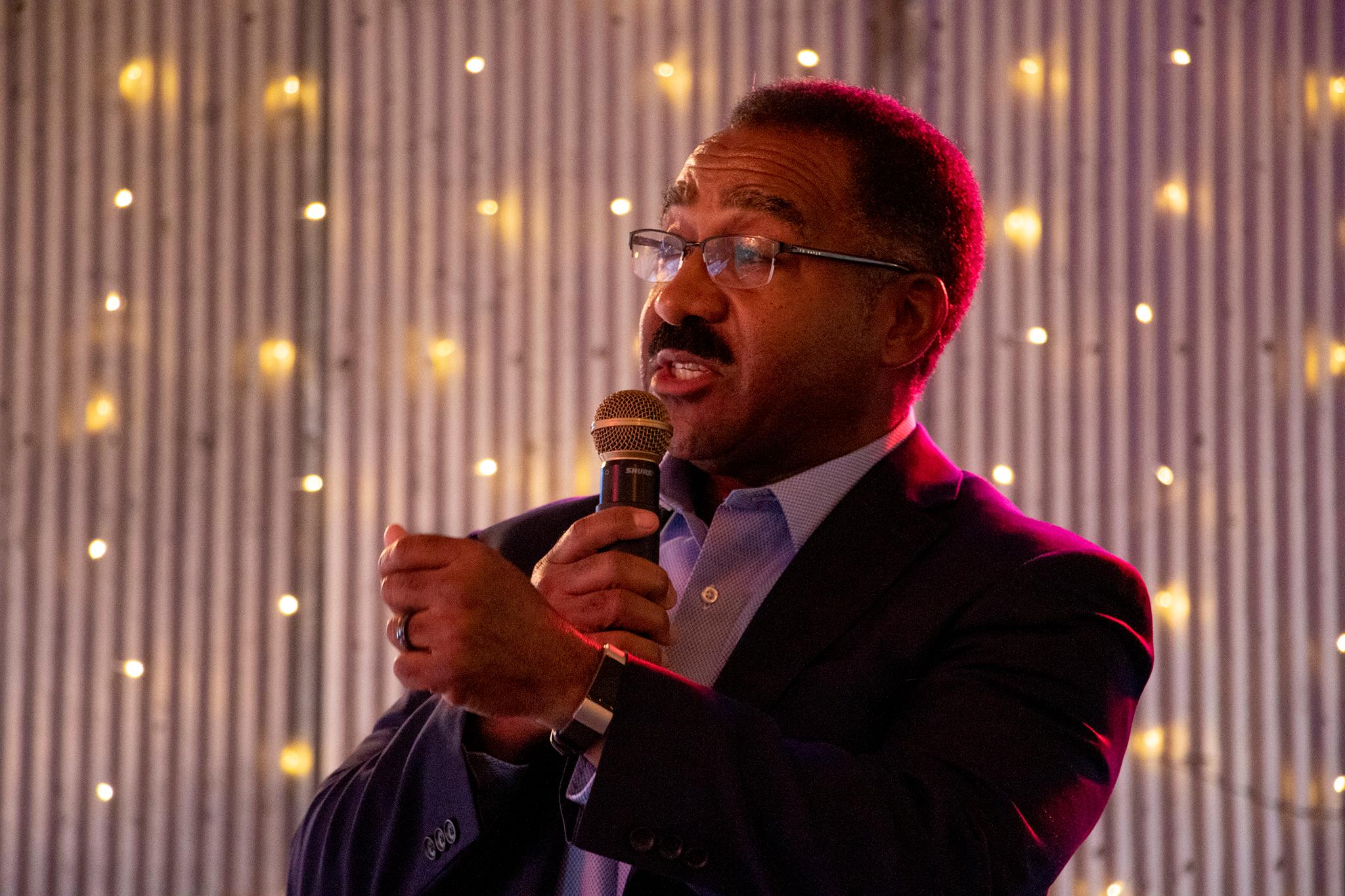
Tate -- you might be sensing a pattern here -- says he would rein in what he sees as poorly planned growth in order to preserve small businesses and affordable homes.
"Growth has not been planned well," Tate said in an interview. "Growth has been happening to neighborhoods instead of with them and for them."
Tate would address homelessness and affordable housing by working with the private sector, particularly nonprofit developers, to come up with "more creative" ways to incentivize new attainable homes. He's been speaking with home builders in the nonprofit sector and would take their advice to heart, he said.
Asked if he supports the urban camping ban that prevents people without homes from taking shelter in public, Tate was noncommittal.
"It's the wrong conversation to be having," he said. "Those are symptoms of the problem and we need to refocus on real solutions."
He would partner with the private sector, particularly nonprofits, and reallocate city resources to deliver solutions, he said.
Transportation and environmental sustainability are two other concerns of Tate's. He believes the Hancock administration is "trying to force people out of cars," which is "misguided." He said would prioritize investing in transit, but also prioritize the freer movement of cars... somehow. The city's been doing that for decades, which has resulted in more cars and traffic, so this one should be interesting.
Tate has spent about $35,000 on his campaign so far, but third quarter campaign finance reports show no contributions.
The repeat contender
Stephan Elliot Evans (better known as Chairman Sekú)
If you've ever been to a Denver City Council meeting, you've been in the presence of Stephan Elliot Evans, who goes by Chairmen Seku.
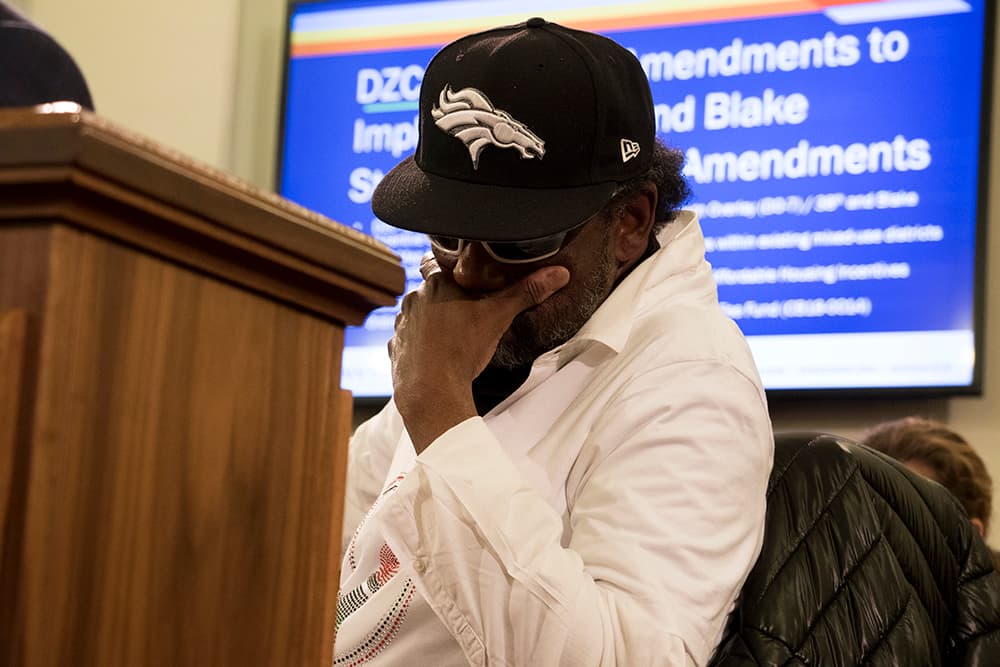
He's got a way with words, and he's got a lot of words about what the city isn't doing for the underprivileged. He shares those words with the city council at nearly every public hearing.
"I'm running to alleviate the unnecessary plight of the masses of people that are poor, working poor, homeless, students and otherwise oppressed," he told Denverite. "Government ain't nothing but a business, and its primary task is to enhance the lives of its citizens. And when it betrays its primary function, it provides a serious look at how we can do this better."
Seku, who is a member of Black Star Action Network for Self Defense, said his first issue is crime. The activist said he would lift the ban on openly carrying guns in city limits "because people have to protect themselves."
Seku, who ran for mayor in 2011, said also he would end the urban camping ban and give residents a greater share of the wealth wrought from development.
"There's a hole in the bottom of our social economic ladder," Seku said. "People are on the bottom, drowning. We invite you to our neighborhood and you take the whole thing.

